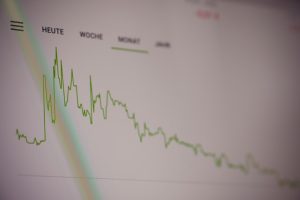Forex trading, also known as foreign exchange trading, is a popular way of making money online. This form of trading involves buying and selling different currencies with the aim of making a profit from the exchange rate fluctuations. However, as with any other form of investment, the profits you make from forex trading are subject to taxation. Here’s what you need to know about when to file taxes in forex trading.
First, it is important to understand the tax laws that apply to forex trading. In the United States, forex trading is treated as a form of investment and is subject to the same tax laws that apply to stocks, bonds, and other investment vehicles. This means that any profits you make from forex trading are subject to capital gains tax.
Capital gains tax is a tax on the profit you make from selling an asset at a higher price than you bought it for. In forex trading, this means that if you buy a currency pair at a certain price and sell it at a higher price, the difference between the two prices is considered your capital gain, and you will be taxed on it.
The amount of tax you pay on your capital gains depends on how long you hold the asset before selling it. If you hold the asset for more than a year before selling it, you will be subject to long-term capital gains tax, which is generally lower than short-term capital gains tax. If you hold the asset for less than a year before selling it, you will be subject to short-term capital gains tax, which is generally higher than long-term capital gains tax.
So, when should you file taxes in forex trading? The answer is simple: you should file taxes on your forex trading profits every year, just like you would with any other form of investment. The tax year for individual taxpayers in the United States runs from January 1 to December 31, so you should file your taxes for the previous year by April 15 of the following year.
To file your taxes on forex trading profits, you will need to report your capital gains and losses on Schedule D of your tax return. You will also need to keep accurate records of all your forex trading transactions, including the dates of each trade, the currency pairs involved, and the profits or losses you made on each trade. This will help you calculate your capital gains and losses accurately and ensure that you are paying the correct amount of tax.
In addition to capital gains tax, forex traders may also be subject to other taxes, such as income tax and self-employment tax. If you are a full-time forex trader and earn a significant portion of your income from forex trading, you may be considered self-employed and will need to pay self-employment tax on your profits. You should consult with a tax professional to determine your tax obligations as a forex trader.
In conclusion, forex trading can be a lucrative form of investment, but it is important to understand the tax laws that apply to it. You should file taxes on your forex trading profits every year and keep accurate records of all your trading transactions. If you are unsure about your tax obligations as a forex trader, you should consult with a tax professional to ensure that you are paying the correct amount of tax and avoiding any potential penalties or fines.





